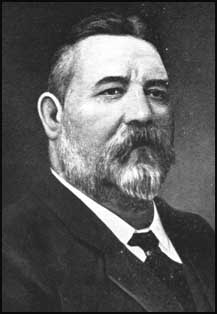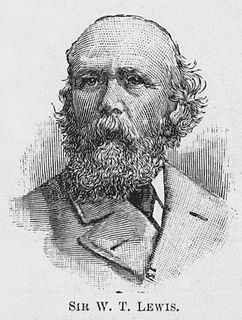The 1877-80 School Board
| | This section is empty. You can help by adding to it. (March 2014) |
The Aberdare School Board was formed in 1871 and consisted of thirteen members elected for a period of three years. It was abolished, along with other School Boards in 1902 and its responsibilities transferred to Glamorgan County Council.
In the main, the members were local industrialists, tradesmen, nonconformist ministers. [1] In later years, this changed to include a smattering of working men,
In late 1870 a vestry meeting was held at Aberdare, presided over by the rector of Aberdare, John David Jenkins, where it was agreed, on the proposal of Rev Thomas Price, seconded by Rees Hopkin Rhys, that a School Board be elected as soon as possible. Rev David Price, Siloa, hoped that there would be no contest. ‘A contest’, he argued, ‘would be productive of personal feeling besides being expensive and full of turmoil. It would also rouse a feeling of denominationalism, and he wished that to be entirely sunk. They should forget the sects in their regard for the general objects of the movement, and elect members for fitness alone.’ [2]
The first elections were held in 1871. Initially, 42 candidates were nominated for the election. [3] Many withdrew before the poll but the election was still contested by twenty-three candidates. Of these, six were nonconformist ministers, five colliery agents, managers or proprietors. The first election was a contest between religious bodies but, as one local newspaper noted, none had reason to be disappointed with the result. [4]
James Lewis, who had topped the poll, was proposed by Thomas Price as first chairman of the School Board. Price himself became vice chairman.
The first six months in the history of the Board were uneventful, in contrast to other places. In neighbouring Merthyr Tydfil, for example, the nonconformists were in a minority and a bye-law was passed, supported by the Anglicans and Roman Catholics, to endow their schools.
In 1874 ministers were reduced to three out of fifteen candidates, there were again five colliery officials, and the rest were publicans and drapers. In the 1880s, the pattern is clearer. Apart from David Morgan, the Aberdare miners' agent who topped the poll, the 1886 list included four influential figures connected with the coal industry, five ministers of various denominations, four grocers, two merchants and a solicitor. [5]
By 1889 the Board was responsible for the administration of fourteen schools with accommodation for 1,749 pupils.
Only three members of the current Board, namely James Lewis, Thomas Price and David Rees Davies, the latter of whom was defeated.
The new Board is composed of gentlemen of talent, education, energy, and experience in practical work of various kinds, all of which combine to fit them for the duties which they have been selected to fulfill. If the qualifications we have enumerated are brought to bear upon the duties of the Board, three years hence the electors will not regret the choice just made. Aberdare is happily free from the bitter controversies which have been connected with School Board elections in various parts of the United Kingdom. With us there has, on the present occasion, been less of the sectarian spirit than even the little which showed itself three years ago.
At the end of its term of office the School Board published its triennial report. James Lewis also announced that he would not seek re-election.
| | This section is empty. You can help by adding to it. (March 2014) |
Working men candidates had been elected to School Boards in the late 1870s, notably William Abraham (Mabon) in the Rhondda. However, there was no conscious effort in Aberdare until 1883 when two working men candidates, David Morgan, miners’ agent, and Isaac Jones were nominated by the local miners’ association. This was the one occasion when there was no contested election, and following a ratepayers’ meeting, Morgan was returned. This appears to be the first occasion when a working man was elected to a public body in the Aberdare Valley (Pretty 2001, 508).
| | This section is empty. You can help by adding to it. (March 2014) |
A feature of this election was a change in personnel with a number of sitting members being defeated. The vicar topped the poll.
The miners were sufficiently well organised to make a determined attempt to increase their representation and a vote was held to choose two additional candidates to contest the election alongside David Morgan.

Aberdare is a town in the Cynon Valley area of Rhondda Cynon Taf, Wales, at the confluence of the Rivers Dare (Dâr) and Cynon. Aberdare has a population of 39,550. Aberdare is 4 miles (6 km) south-west of Merthyr Tydfil, 20 miles (32 km) north-west of Cardiff and 22 miles (35 km) east-north-east of Swansea. During the 19th century it became a thriving industrial settlement, which was also notable for the vitality of its cultural life and as an important publishing centre.

William Abraham, universally known by his bardic name, Mabon, was a Welsh trade unionist and Liberal/Labour politician, and a member of parliament (MP) from 1885 to 1920. Although an MP for 35 years, it was as a trade unionist that Abraham is most well known. Initially a pioneer of trade unionism, who fought to enshrine the principle of workers' representation against the opposition of the coal-owners, he was regarded in later life as a moderate voice believing that disputes should be solved through conciliation rather than industrial action. This drew him into conflict with younger and more militant leaders from the 1890s onwards. Although the defeat of the miners in the Welsh coal strike of 1898 was a clear defeat for Mabon's strategy, his prestige was sufficient to ensure that he became the first president of the South Wales Miners' Federation which was established in the wake of the dispute. Abraham was noted for his powerful speaking voice, and was a renowned orator in English and Welsh.

William Thomas Lewis, 1st Baron Merthyr, known as Sir William Lewis, 1st Baronet, from 1896 to 1911, was a Welsh coal mining magnate.

Richard Fothergill was an English ironmaster, a coalmine-owner in Wales and a Liberal politician who sat in the House of Commons from 1868 to 1880.
Aberdare Urban District Council was a local authority in Aberdare, Wales.
Thomas Price was a leading figure in the political and religious life of Victorian Wales and minister of Calfaria Baptist Chapel, Aberdare.
The Aberdare Urban District Council was established in 1894 and covered the parish of Aberdare. Its responsibilities included public health, sanitation, roads and public works generally.
The first election to the Glamorgan County Council were held on 17 January 1889. Results were announced over several days. They were followed by the 1892 election. The authority, by far the largest county in Wales in terms of population, was established by the 1888 Local Government Act. The county of Glamorgan was at this time becoming heavily industrialised although some areas such as the Vale of Glamorgan remained essentially rural.
David Davis, Maesyffynnon, (1821–1884), son of David Davis, Blaengwawr was a prominent Welsh coal owner and public figure. He built upon the work of his father and expanded the family's industrial holdings in the Aberdare and Rhondda valleys. He had two daughters, Mary and Catherine. Mary married H.T. Edwards, vicar of Aberdare and later Dean of St Asaph and Catherine married Sir Francis Edwards.
Aberdare Local Board of Health was established in 1854 in response to the 1848 Public Health Act, and a report on the sanitary condition of the town conducted by Thomas Webster Rammell. It was eventually replaced in 1894 by Aberdare Urban District Council.
The second election to the Glamorgan County Council was held on 8 March 1892. The 1889 election was the first contest and the next was the 1895 election. Glamorgan County Council had been established by the 1888 Local Government Act, and the first election held in January 1889. Glamorgan was by far the largest county in Wales in terms of population. The county of Glamorgan was at this time becoming heavily industrialised, although some areas such as the Vale of Glamorgan remained essentially rural. The rise of nonconformist liberalism, especially since the 1860s, throughout Wales, had challenged the prevailing influence of the landed gentry. However, even in 1889, the traditional forces remained influential and no working men were elected to the Council. This changed in 1892 with the unopposed return of David Morgan in Aberdare and the success of Isaac Evans in Resolven.
Frederick Lewis Davis was a Liberal politician and a member of a notable family of coal owners in South Wales. His grandfather, David Davis, Blaengwawr was a pioneer of the coal trade in the Aberdare valley while his father, Lewis Davis and uncle, David Davis, Maesyffynnon developed the business and were pioneers of the coal trade in the Rhondda, most notably at Ferndale. Having trained as a barrister, Davis joined the family business.
The third election to Glamorgan County Council election was held on 4 March 1895. It was preceded by the 1892 election and followed by the 1898 election.
David Morgan was a Welsh miners' agent and trade unionist who played a prominent role in the history of industrial relations in the South Wales Coalfield from the 1870s until his death in 1900.
The Glamorgan County Council election, 1898 was the fourth contest for seats on this authority. It was preceded by the 1895 election and followed by the 1901 election. Glamorgan was by far the largest county in Wales in terms of population. Glamorgan County Council had been established by the 1888 Local Government Act, and the first elections held in early 1889. The county of Glamorgan was at this time becoming heavily industrialised, although some areas such as the Vale of Glamorgan remained essentially rural. The rise of nonconformist liberalism, especially since the 1860s, throughout Wales, had challenged the prevailing influence of the landed gentry. However, even in 1889, the traditional forces remained influential and no working men were elected to the Council. This changed in 1892 with the unopposed return of David Morgan in Aberdare and the success of Isaac Evans in Resolven.
Rhondda Urban District Council was a local authority in Glamorgan, Wales. It was created in 1894 as a result of the 1894 Local Government of England and Wales Act and the 1894 election saw the election of the first members of the authority, initially known as the Ystradyfodwg Urban District Council. The Council existed until 1973 and replaced the Ystradyfodwg Local Board of Health which had functioned since the 1870s.. Initially, the Council had fifteen members but this was increased to twenty in 1906, as a result of the increase in population. There were five wards.
The Glamorgan County Council election, 1901 was the fifth contest for seats on this authority in south Wales. It was preceded by the 1898 election and followed by the 1904 election. Glamorgan was by far the largest county in Wales in terms of population. Glamorgan County Council had been established by the Local Government Act 1888, the first elections being held in early 1889.
The Glamorgan County Council election, 1904 was the sixth contest for seats on this authority in south Wales. It was preceded by the 1901 election and followed by the 1907 election. Glamorgan was by far the largest county in Wales in terms of population. Glamorgan County Council had been established by the Local Government Act 1888, the first elections being held in early 1889.
The 1907 Glamorgan County Council election was the seventh contest for seats on this local authority in south Wales. It was preceded by the 1904 election and followed by the 1910 election.
Owen Harris was a Liberal politician and municipal leader in Aberdare, South Wales.
|journal= (help)|journal= (help)